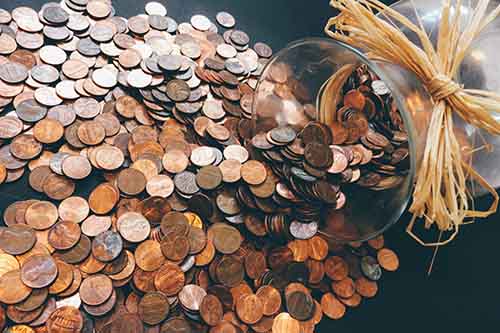
DEALING WITH DEBT
It’s no secret that Americans as a collective are carrying a massive amount of personal debt. It’s also no secret that if you’re trying to buy a house, having debt is not working in your favor. Let’s take a look at just where many of us stand in terms of personal debt and see what we can do to better prepare for that mortgage application process.
Debt in the US
First, let’s look at the US debt load. As of 2017, as a nation, we were more than $1 trillion in credit card debt. That number was up substantially from just five years prior when it topped $850 billion. According to estimates, much of that is paid off in full each month, but for nearly 60% of those carrying a balance, paying it off is a struggle—if not impossible. According to USAtoday.com, California ranked 13th on the list of states with the highest average credit card balance ($6,481).
And that’s just credit cards. The numbers for student loan debt are higher. A collective total of more than $1.5 trillion for starters, which impacts a total of 44 million borrowers. At the state level, California leads this list with more than $111 billion spread across 3.4 million borrowers. Other populous states like Texas, New York, and Florida are also in the Top 4.
Debt and More Debt
So what is the average person in search of a mortgage to do? The short answer is to pay off outstanding debt before starting the loan application process. But there’s no denying that the costs of living are on the rise—especially here in California. Setting aside money for a down payment, paying down those balances, and still managing to pay the bills can be a tall order.
The Upward Climb
If you are carrying too much debt but want or need a home loan, you need to take steps to reduce those balances. Easier said than done, but there are several ways you can achieve this. First, make a list of all your monthly, quarterly, and annual expenses. Factor in incidentals like entertainment, vacations, and eating out. And don’t forget to account for the minimum payments you are making on credit cards. Be honest. Once you know where your money is going, you can find ways to trim it.
To cut back on expenses, consider options like:
- Consolidating credit card debt with a lower interest personal loan or by taking advantage of balance transfer options
- Stopping your credit card usage completely, and paying more than the minimum each month
- Using the “snowball method” on your credit card balances
- Setting smaller goals along the way, so the process doesn’t feel so overwhelming
- Lowering rent payments by taking on a roommate, renting out your garage, or even looking for a cheaper lease alternative
- Reducing incidental expenses like eating out and making expensive coffee runs
Credit Rating and Debt
One of the most important factors in your ability to secure a mortgage is your credit score. Your credit score, in turn, is heavily impacted (negatively) by your debt to credit ratio (the percentage of your total available credit that you are using). When you monitor your credit scores, the credit bureaus will notify you of any changes—negative and positive. As you pay off debt, you will see your scores increase. Talk with a mortgage broker who can offer you advice on where your credit score needs to be to secure better rates. A broker can also provide guidance on special programs that may offer a smaller down payment or a no-fee mortgage.
Keep the Goal in Mind
For many people, once they have a goal of buying a home, the process can’t seem to move quickly enough. There is a lot of excitement in the searching process, and there is a lot of emotion wrapped up in deciding on which house to call “home.” But if you are one of the millions of Americans carrying a big personal debt load, you owe it to yourself to get that under control first. Keeping the goal of homeownership in your sights will help keep you on track with your debt reduction strategies, which will ultimately get you where you want to be, sooner.

